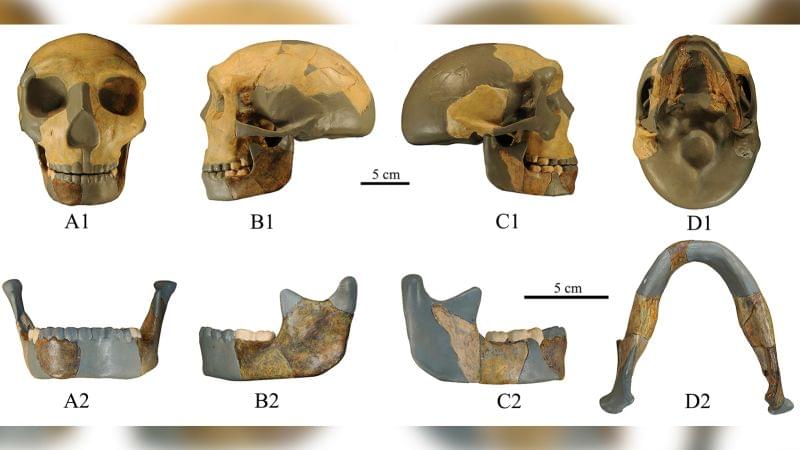An ancient skull dating back 300,000 years is unlike any other premodern human fossil ever found, potentially pointing to a new branch in the human family tree, according to new research.
An international team of researchers from China, Spain and the United Kingdom unearthed the skull — specifically the mandible, or lower jaw — in the Hualongdong region of eastern China in 2015, along with 15 other specimens, all thought to originate from the late Middle Pleistocene period.
Scientists believe the late Middle Pleistocene, which started around 300,000 years ago, was a pivotal period for the evolution of hominins — species that are regarded as human or closely related — including modern humans.
